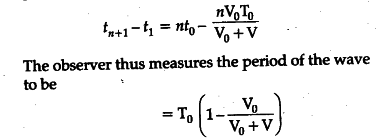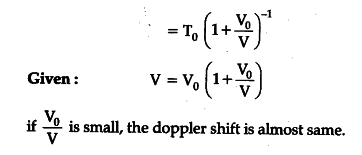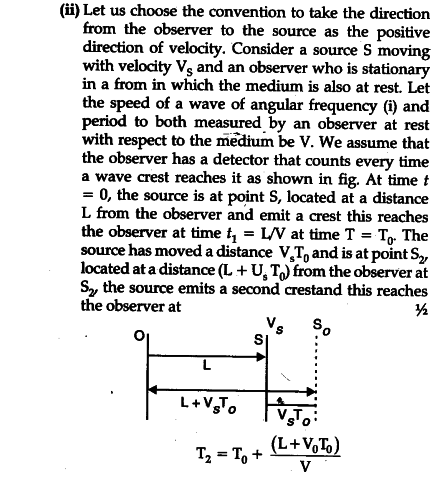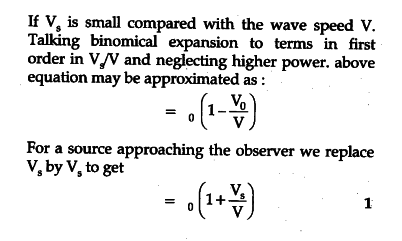Define Doppler effect Deduce the apparent frequency of sound in case of:
(i) Source is in rest and observer is moving toward source.
(ii) Observer is in rest and source is moving away from observer.
It is an everyday experience that the pitch for frequency of the whistle of a fast moving train decreases as, it recedes away. When we approach a stationary source of sound with high speed, the pitch of the sound heard appears to be higher than that of the source. As the observer recedes away from the source, the observed pitch or frequency becomes lower than that of the source this motion related frequencies change, is called doppler’s effect.
(i) Observer moving, source stationary. Now, to derive the doppler shift when the observer is moving with velocity {{V}_{0}} towards the source and the source is at the rest, we have to proceed in a different manner. We work in the reference frame of the moving observe in this reference from the source and medium are approaching at speed v0 and the speed with which the observer have approaches is v0 + v, following a similar procedure as in the previous case. We find that the time internal between the arrival of the first and the (n+1)th crest is




